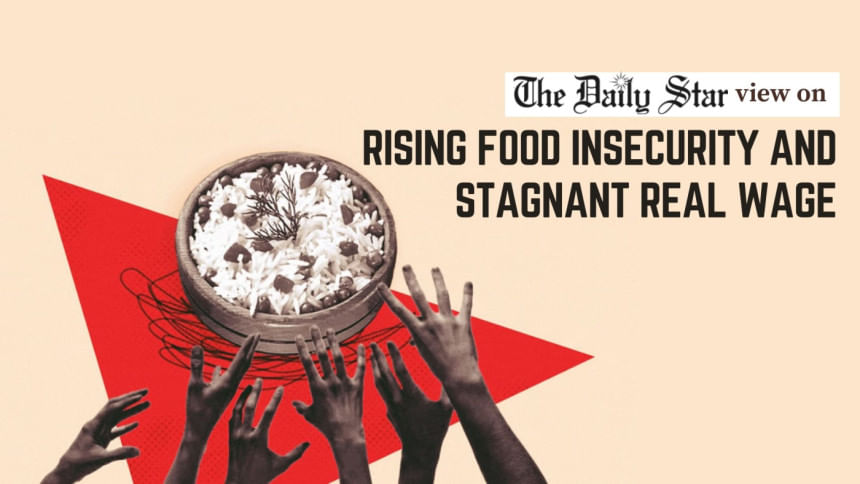Food insecurity still haunts the poor

We are deeply concerned that persistent inflation, rising unemployment, and inadequate government support continue to push people towards poverty, despite the economy showing some signs of recovery of late. Reportedly, every day, people from poor and low-income groups are seen lining up in front of TCB trucks early in the morning to buy basic items like rice, lentils, and cooking oil, which are sold at slightly cheaper prices than in regular markets. But many go home empty-handed because supplies run out quickly. To deal with the rising prices of food and other essentials, some have reportedly reduced their food quality, and even given up medical treatment and children's education.
Talking to individuals from poor, low, and middle-income groups, our reporters found that people from these socioeconomic backgrounds are struggling to meet their basic needs with their current income. For instance, rickshaw puller Masud Rana, with his monthly income of Tk 12,000, can now afford to have some cheap fish in his meals only twice a week, whereas just a year ago he could afford fish five days a week. Samiul Islam, a private sector employee in Dhaka who represents many in the middle-income bracket, finds himself borrowing at the end of each month despite cutting all non-essential expenses. Power loom worker Omar Faruk and garment employee Darul Huda reported rising living costs and an inability to save, even while working full-time. These accounts reflect the widespread impact of inflation and economic strain across various income groups in the country and a deepening crisis of poverty and food insecurity.
The Global Report on Food Crises 2025 ranks Bangladesh fourth globally in terms of people suffering from severe food insecurity. This long-standing challenge is now compounded by rising inflation, stagnant wages, and a still slow economy. According to the Bangladesh Bureau of Statistics, in July, the overall inflation rose to 8.55 percent and food inflation climbed to 7.56 percent, while real wages continued to fall for the 42 consecutive months, meaning incomes are not keeping pace with the rising costs.
To address this crisis, the government must prioritise policies that curb inflation and stimulate job creation. Expanding social safety nets, investing in agriculture and small enterprises, and ensuring fair wage growth are essential steps. Without urgent action, food insecurity and poverty may get worse in the country.


 For all latest news, follow The Daily Star's Google News channel.
For all latest news, follow The Daily Star's Google News channel. 






Comments